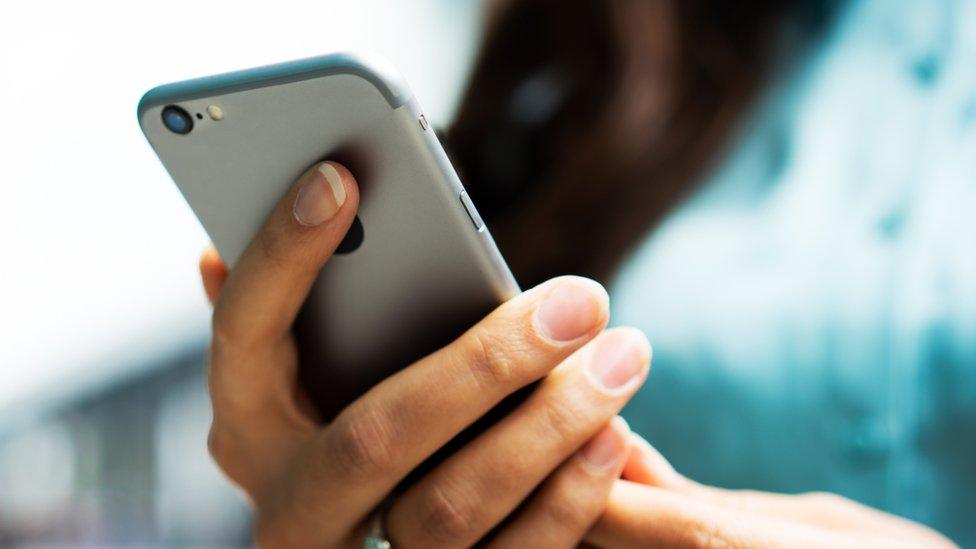Filter out 'unverified' accounts, tech giants told
- Published

Social networks should let people hide posts and messages from accounts without a verified owner, the government has proposed.
If passed, the government's online safety bill would force large social networks such as Facebook to let people filter out unverified accounts.
How to verify a user's identity would be up to the social network.
Culture Secretary Nadine Dorries said the plan would reduce anonymous trolling.
The government's proposed online safety laws could see social networks fined 10% of their global turnover if they fail to tackle harmful content.
The bill also covers the posting of so-called revenge porn, human trafficking, online extremism and promoting suicide online.
The Department for Digital, Culture, Media and Sport (DCMS) highlighted the racist abuse of England's Euro 2020 footballers as an example of online trolling.
While the proposed law would not stop people making anonymous accounts and posting abuse, social networks would be forced to give their users the option to "opt out" of seeing any posts from unverified accounts.
The DCMS suggested social networks might choose to let people verify their identity by proving their profile photo was a true likeness, submitting government ID or linking their account to a registered mobile phone number.
The exact method of verification would be left to the social networks to decide.
Toxic content
The DCMS acknowledged that people use anonymous accounts for a variety of reasons, including whistle-blowing, exploring their sexuality or sharing their experience in an authoritarian company.
However, it said users should be given tools to "control who can interact with them".
In addition, social networks would also be required to let people filter out "legal but harmful" content.
It said promotion of eating disorders and dangerous vaccine disinformation was "toxic", but fell below the threshold of a criminal offence.
"People will now have more control over who can contact them and be able to stop the tidal wave of hate served up to them by rogue algorithms," said Culture Secretary Nadine Dorries.
Related topics
- Published5 February 2022